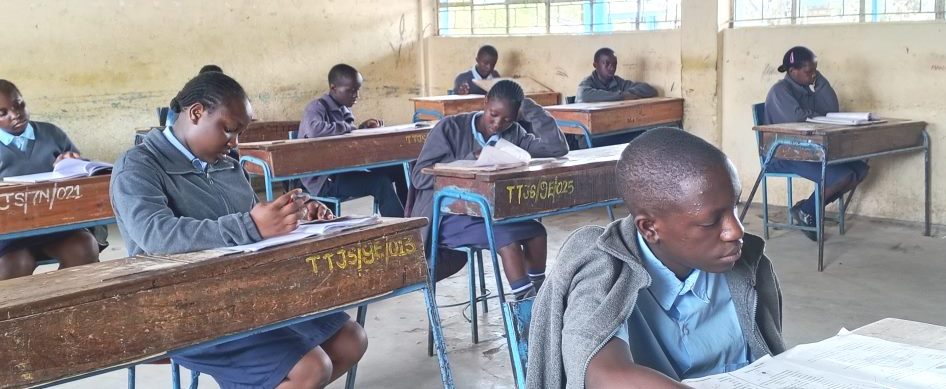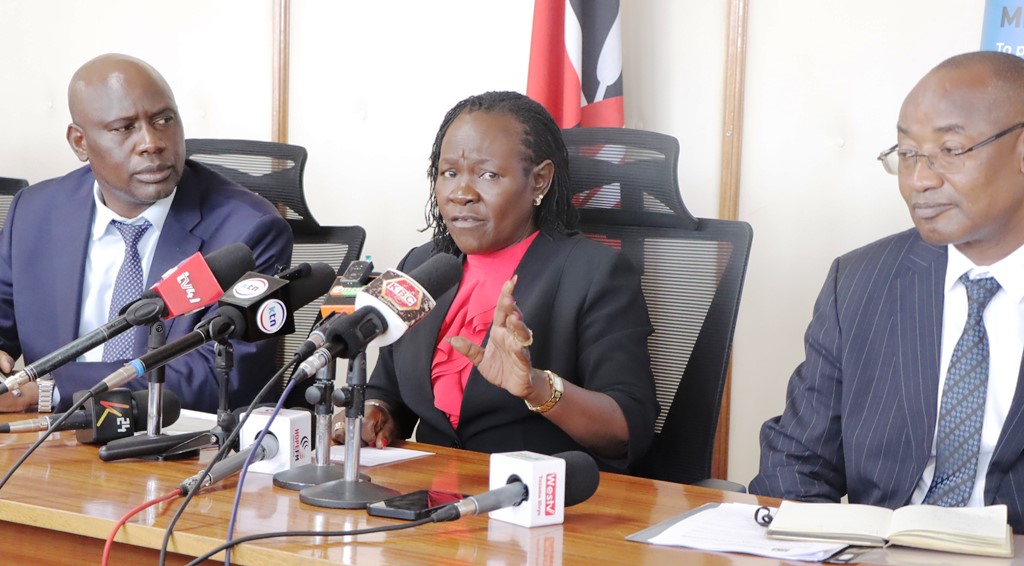A statistical survey around the country by TSC’s internal audit reveals that field records of teachers and those at the TSC offices do not match, meaning some teachers have exited service but are still being paid.
By Peter Otuoro
Teachers Service Commission (TSC) has been paying ghost teachers from across many counties for a period believed to be many years now.
Coming at a time when teachers are negotiating pay increments through the major trade Unions, TSC Internal Audit Directorate official Isaac Mamu said they have been visiting various schools in the 47 counties and identified various inconsistencies between their official records and the reality on the ground.
A number of teachers in different schools were reportedly on the TSC pay roll while they were already out of the teaching service.
Speaking at ARC Hall in Egerton University during a five-day workshop for sub-county directors, Mamu instructed their officials to scrutinize their own records of teachers to ensure only those who are still contracted to serve receive salaries.
He revealed that most recently, the TSC internal audit team visited a few Murang’a County schools and found that two teachers were being paid for services not rendered.
However, he did not reveal how long these ghost teachers had been earning salaries.
He said the Commission’s internal audit’s role is to investigate irregularities in various TSC offices and work stations, before reporting them to the Board for action by relevant TSC directorate.
“From our findings, after visiting various counties, we have identified a lot of irregularities especially in the TSC pay roll. We confirm that the statistics in the TSC files at the headquarters are very different from statistics that are in the field,” revealed Mamu.
He added that from their visit to various schools in different counties, they discovered that some teachers are overpaid as others go for two years without salaries. He attributed this to possible statistical discrepancies between the files that are in TSC headquarters, and those in the county headquarters.
Besides, he noted, schools in urban centres have more female teachers compared to schools in rural areas. The reverse is true for male teachers.
Mamu encouraged TSC Staffing Directorate, as well as county and sub-county directors to balance teachers along all fair considerations so that services are rendered equally and impartially in all parts of the country.
“Schools in urban areas were not meant for female teachers and schools in rural areas are not for male teachers only. Both female and male teachers were employed by the Commission to work in any part of Kenya,” added the TSC official.
He also revealed that over a thousand schools across the country have only one gender of teachers, terming the arrangement unprofessional and miserable, whether they are in mixed, boys or girls only schools.
“If a mixed school has only male teachers, girls in that school will not get critical services of guidance and counselling that can only be adequately offered by female teachers because they understand critical social challenges facing girls,” said Mamu.
The same, he said, is true for boys in the same setting if all teachers are female.
Mamu said their statistics also show that most sub-county directors’ offices lacked space, had no furniture, stationery and equipment, as well as being security risks as there were no infrastructure to deal with accidents and incidences such as fire occurrences.
On this, he advised the TSC directorate concerned to urgently take measures to create a good working environment for the over 300 sub-county offices in the country.
Education News had in its previous issue reported the plight of these neglected officers, noting that apart from their facilitation, they were also paid meagre salaries that were far below those of the teachers they supervised.
Meanwhile, he encouraged the sub-county directors to work around what they can to safeguard the Commission’s properties under their care and the lives of staff.
He suggested they could work closely with the Interior Ministry to ensure Commission’s offices and properties are safe.
Nevertheless, he praised the county and sub-county directors for doing a commendable job of ensuring that their offices have active disciplinary panels and teacher recruitment committees, which are essential and integral to their functions.
“We thank our county and sub-county directors for ensuring that their respective counties and sub-counties have fully constituted disciplinary panels and recruitment committees,” said Mamu.
He also thanked them for ensuring that most counties have updated financial management records like cash and vote books, and receipt and payment vouchers.
Mamu also said they had realized most teachers posted to special needs education institutions are regular teachers and not special needs-trained.
He advised the TSC staffing directorate to ensure only those who have undergone special needs training are posted to special needs schools.
“Majority of learners in special needs institutions require teachers trained in special needs because they are the ones who know how to use various assistive devices used by these learners,” pointed out Mamu.
He said most schools have no administrators, especially deputy principals, thus undermining the crucial role they play in institutional management.






